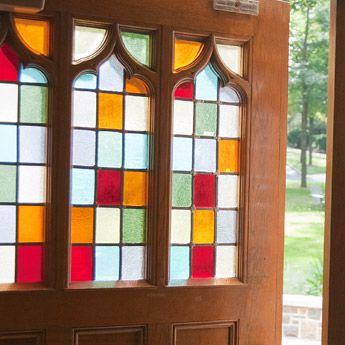A structure, Muhannad Suleiman likes to observe, is only as strong as the soil on which it stands. A bridge or skyscraper can be built with the best materials and construction techniques, but it won’t withstand earthquakes or other natural hazards if it rests on weak or loose soil.
Suleiman, an associate professor of civil and environmental engineering, is proposing to provide structures with a firmer, more environmentally friendly soil foundation by enlisting the aid of an enzyme found in deep sea sponges.
The enzyme, called silicatein, has shown promise in precipitating the formation of flexible calcite (calcium carbonate) in soils. The calcite acts to strengthen soil by causing its tiny particles to cement together.
Suleiman and two other faculty members—Bryan Berger, associate professor of chemical and biomolecular engineering, and Derick Brown, associate professor of civil and environmental engineering—recently received an 18-month grant from the National Science Foundation to explore silicatein’s potential as a soil strengthening agent.
Engineers have traditionally strengthened weak or loose soil by compacting it or by grouting it with cement, says Suleiman, whose specialty is geotechnical engineering. This helps soil resist the loading, or forces, imposed by natural hazards.
In their NSF project, Suleiman, Berger and Brown are seeking to scale up the production of silicatein in the lab. They are also attempting to engineer silicatein so it provides the optimal bond properties between soil particles, enabling the soil to remain stable when subjected to natural hazards. Another goal of the project is to achieve uniform deposition and transport of the enzyme through soil.
Suleiman also has a 2016 Faculty Innovation Grant (FIG) from Lehigh in which he is seeking to improve soil strength and bonding with silica.
“We’re attempting to hit a similar target with two different processes,” he said.
The latest award is Suleiman’s fifth from NSF in eight years. He is also collaborating with a biologist in Qatar to use bacteria to improve soil’s performance under sand storm conditions. That project is funded by the Qatar National Research Fund (QNRF).
Read the full story at the Lehigh University News Center.
-Kurt Pfitzer is Manager of Editorial Services with Lehigh University's Office of Communications and Public Affairs.

